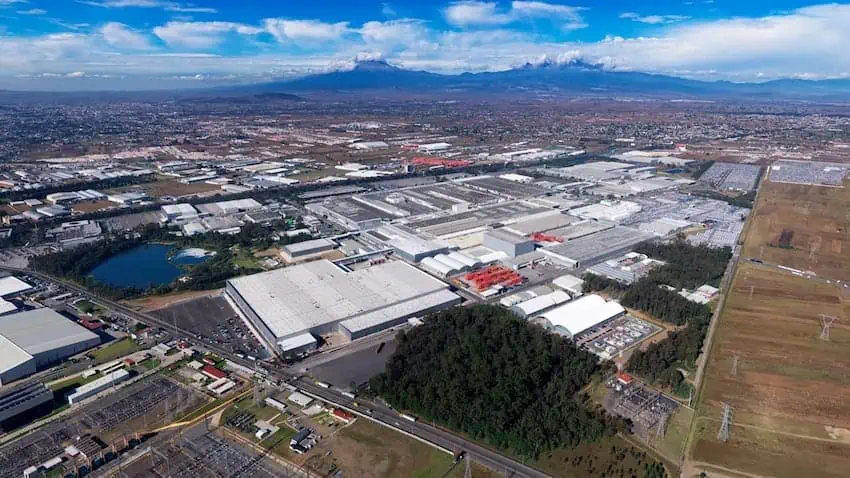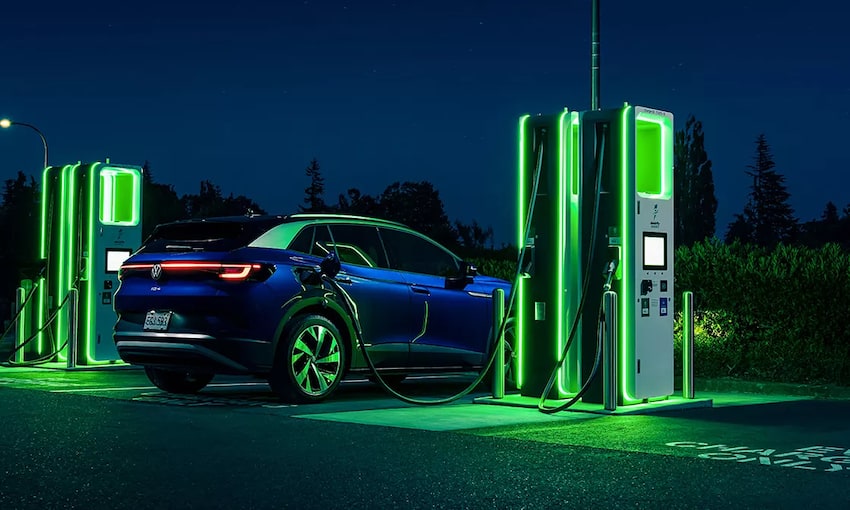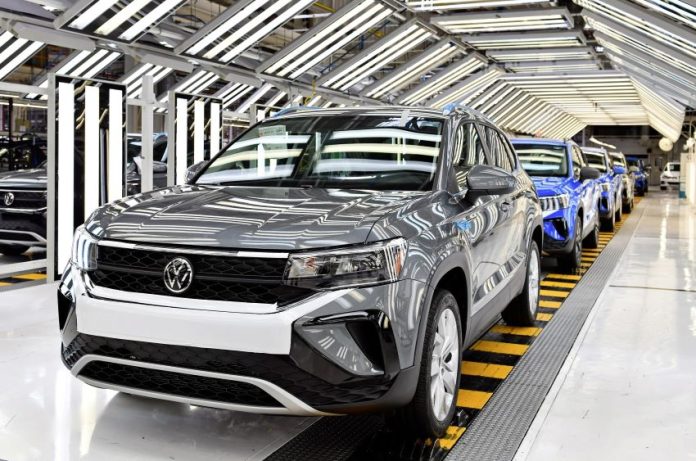German car manufacturer Volkswagen will invest nearly US $1 billion in a second round of spending at its existing plant in Puebla, company and state officials announced Friday.
The influx of new money will help the carmaker boost electric vehicle (EV) production at the 300-hectare facility – Volkswagen’s largest factory outside of Germany and the largest automobile factory in all of Mexico, according to VW.

VW also operates an engine-manufacturing plant in Silao, Guanajuato, that is one-fifth the size.
In 2023, the Puebla plant produced 349,200 cars (an increase of 15.7% over 2022) and the Silao plant cranked out 436,200 engines, VW reported. The models produced in Puebla are Jetta, Taos and Tiguan, along with the Audi Q5 (VW owns a majority of shares in Audi).
Neither VW nor state officials offered details on what kind of EV production will be undertaken in Puebla. Overall last year, VW said it produced 771,100 EVs globally, an increase of 34.7% over 2022.
The new round of spending follows a US $763.5 million investment, announced in late 2022, that has gone toward modernization, making the production process more environmentally friendly and building a painting facility.

The announcement of the new investment was attended by Puebla’s interim governor, Sergio Salomón Céspedes, and Volkswagen’s Mexico director, Holger Nestler.
Nestler said the VW plants in Puebla, which opened in 1967, and Silao, which opened in 2013, employ more than 20,000 people.
Salomón said the state government is committed to providing businesses with opportunities that will also contribute to the growth of Puebla. Nestler also spoke of the importance of collaboration.
“This second investment package is also an example of the relevance of the state, where today we reaffirm manufacturing quality, while optimizing our business management based on environmental, social and corporate governance criteria, with a broad impact on the communities,” he said in a statement.
The main markets for VW-s Mexico-produced EVs will be Mexico, the United States and Canada, as previously indicated by the company.
However, according to recent statements by Odracir Barquera, director of the Mexican Automotive Industry Association (AMIA), 100% of the more than 106,000 EV units manufactured in Mexico in 2023 were exported. The total included 94,500 Ford Mustang Mach-E vehicles produced in México state and 11,700 Chevy Blazer EVs in Coahuila.
Last year’s total could double to 212,000 for 2024, Barquera said. What is unknown is how many, if any, will be sold and driven in Mexico, as EVs are more expensive than traditional cars and there are only 1,100 charging stations nationwide, AMIA notes.
With reports from Reuters
